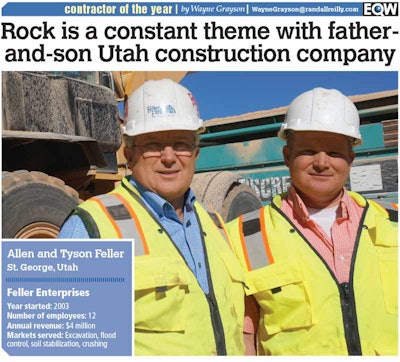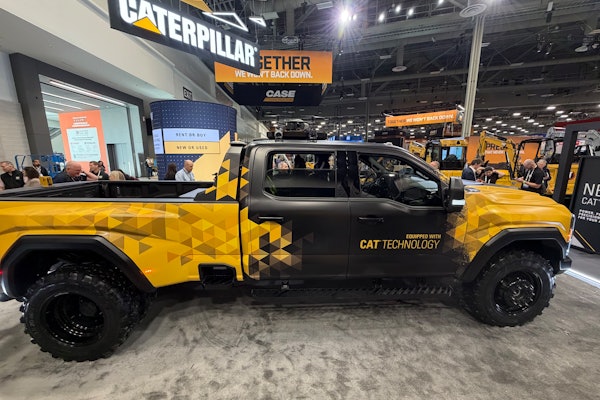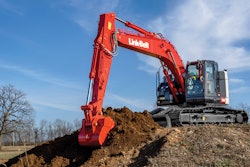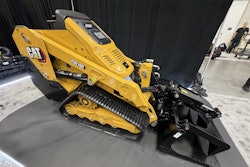
Allen Feller started Feller Stone with his brother in 1980, quarrying and gathering rocks the world over and selling them to aquarium suppliers.
“My dad was a stonemason and a school teacher, and he said ‘let’s go buy this rainbow rock quarry,’ and we started selling rock from it for building stone. In 1980 when the downturn hit, I started taking rock to Los Angeles and selling it to aquarium stores and they asked if I could put a hole in the rock,” Feller says.
“At the time, I had a pregnant wife and a quarry loan. So I started sandblasting holes in those rocks for fish and it just exploded from New York to Maine and all the way into Europe, places like Italy to Germany. We would go to all these crazy quarries and dig this rock and we had a blast doing it.”
But in 2003, a friend living in the beautiful Utah desert asked Feller to design and build a privacy wall that would blend into the landscape. That wall became a beautiful mile-long stone barrier.
“That’s when we realized there’s a whole new avenue of excavation here,” Feller recalls.
Allen brought his boys up in the business and his son Tyson liked working with heavy equipment so much that following the privacy wall job he suggested they split off from Feller Stone and go into commercial excavation.
So in 2003 Allen and Tyson formed Feller Enterprises with a couple of excavators and a wheel loader. “When we split, I agreed to do all the quarrying for my brother so I took all the equipment,” Feller says.
“We’re not afraid”
In 2005, the St. George area saw massive flooding, giving Feller Enterprises the company’s first shot at what would become a core part of its business: placing riprap. Feller describes the work as “placing rocks in a way to stop Mother Nature from ripping them out.”
“And I love it,” he continues. “On one of our biggest jobs we spent 40 days digging, quarrying, hauling and placing more than 100,000 tons of rock. We’ve just learned that if you can get a job out in the boondocks—out in the rocks— you’re in one of the prettiest places in the world.”
When the recession hit, Feller saw many friends and competitors fold. The Fellers resolved to stay in business no matter what, so the company slimmed down, selling off much of its equipment. And they looked for work outside of their normal geographic area.
In December 2008, Allen left Tyson with a crew to handle local jobs and took a job in Texas with the U.S. Department of Agriculture’s National Resources Conservation Service, building headwalls and setting riprap and gabion baskets.
“I think that challenge stirred up a lot of that feeling when it’s looking tough, and your blood boils, and you crank it harder and we just got aggressive,” Allen Feller says. “We’re not afraid to do anything.”
Allen says the job saved the company and forged an important relationship with the NRCS which continues to this day. “We loved fixing something that was broken,” Feller says.
“I think a lot of what saved us was Allen’s ambition,” Tyson Feller says of his father. “He’s not ever afraid to go and do something that maybe is a little bit new. I think we were lucky too, that myself and our guys were able to stay back and find more work here at home.”
Kathleen Pinckney with the NRCS said it was Feller’s flexibility, attention to detail and willingness to give customers exactly what they need that began what was a three-year stretch of constant work for the company.
“If you walked out there and said, ‘This is not what we asked for,’ he got it done. And he generally would go over and above,” she says.
Today the company specializes in flood control and soil stabilization projects, employs 12 people and does an annual volume between $3 million and $5 million.
“It’s always nice to drive around town after a flood comes through and see how well the riprapping worked,” Tyson Feller says. “A lot of people think what we do is all the same. But all the projects are so different in the process and challenges themselves.”
A good man is hard to find
And while ambition and riprapping saved the company, Allen and Tyson Feller say their attention to detail and the talent of their employees has made them successful.
“Part of our success is that most of our guys started with us and now they’re like us,” Allen Feller explains. “They take care of our clients like we do to the point that the clients have started asking for the guys who work for me by name.”
“The guys that we have held on to have put us where we are,” agrees Tyson Feller. “We have some excellent operators who are so versatile and able to do what we need them to do. But they’re also just good guys and we do everything we can to take care of them.”
Just as countless other contractors across the United States, both Allen and Tyson Feller see finding more quality workers as the biggest challenge facing their company.
“It’s hard,” says Allen Feller of finding the right people. “I’ve hired and been disappointed plenty and you just have to realize when you’re hiring that you can’t always believe what they say. You have to see how they work with you and how it all meshes.”
Tyson Feller explains that the lack of skilled workers is especially painful since the company would like to grow a bit more. With the addition of a decorative rock crushing business, Feller Enterprises is in search of good managers in order to give Allen more time to oversee the whole operation.
“I’ve been noticing in the last couple of years we’ve been having trouble finding good operators too,” he adds. “Especially the younger guys, their work ethic isn’t there. That puts the strain on me which if we’re short on a foreman I’ve got to go out there.”
One piece of advice: rent
As far as advice for other contractors goes, Allen Feller said he can’t recommend renting equipment enough. Beyond owning a few excavators and several pieces of compact equipment, Feller rents everything else as he needs it.
“I have grown my business by renting so I didn’t have those huge payments. I love paying my bills on time. I love the satisfaction that if someone works for me they’re going to get paid,” he says.
“We’re conservative so we don’t have a lot of everything. We just work hard with what we’ve got. My overhead has made it so that we can pay our guys and have enough to live on. We haven’t wanted everything. We’ve been willing to do without.”
He adds that contractors would do well to place extra emphasis on customer service.
“I think the greatest advice is always aim to treat your customers better, because what else have you got when you’re done? I look back at the people that have hired me and I thank God for them. They fed me and my family. They provided me with an opportunity to enjoy very exciting challenges,” he says.











